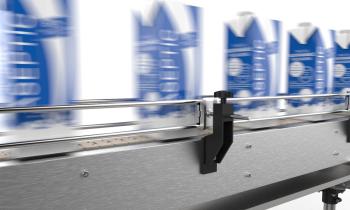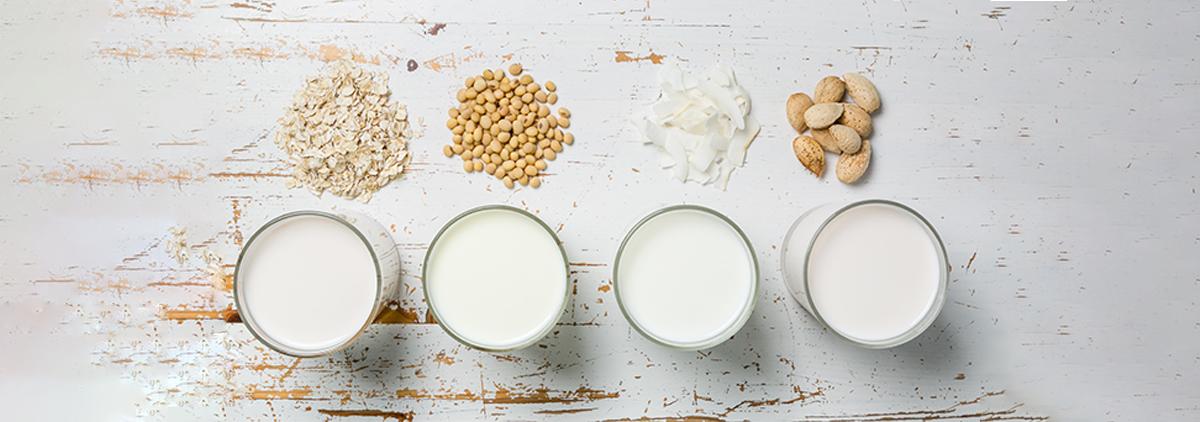What are plant-based food and beverage consumers looking for in 2022?
Consumer habits have changed considerably since March 2020. Over the past two years, customers have come to prioritize their immune systems, overall health, and the food and drink they consume. This trend is contributing to the popularity of plant-based diets. Dairy alternatives packaged in aseptic carton bricks offer tangible health benefits while also appealing to consumers who want to reduce their carbon footprint without compromising on flavor or texture.
Prioritizing physical health and well-being: the benefits of a plant-based diet
Consumer trends have changed drastically over the past two years. People are now more concerned than ever before with what they eat and drink, and how food and beverages impact their strength and immune system[1]. The International Food Information Council’s 2022 Food Trends Report found that consumers are “proactively looking for positive food attributes and exploring immune health[2].” In addition, a study conducted by Globe Scan on 27,000 adults across 27 different markets found that 61% of people want to change their physical health “a great deal[3].” Consumers are becoming increasingly health-conscious in the wake of the pandemic and are looking for ways to improve their well-being at home. The IFIC predicts that Americans “will likely also manage their diets and nutrition through beverages,”[4] and parents with children under 18 are the most likely to try to get all of the nutrients they need (except for calcium) from beverages[5] that contain vitamin C or immunity-boosting supplements, for example. Meanwhile, the Director of Mintel Trends for APAC believes that the pandemic has essentially created a priority shift that has forced consumers to “go back to basics and look to brands for affordability, convenience, and protection.”[6]
The CEO of GlobeScan believes that “health is the area consumers across the globe would like to change the most— and it is also the area where global consumers have made the most changes in the past year.”[7] It will come as no big surprise that global events that disrupt social lives and threaten people’s health lead to significant behavioral changes[8]. The pandemic is evidence of this, and the outbreak of COVID-19 has “positively impacted demand for vitamins and supplements across all regions” as consumers look for ways to “support their immune health and boost their overall well-being.”[9] What’s more, the rise in consumer health concerns has had a knock-on effect on the popularity of plant-based food and beverages and dairy alternatives, which are currently booming, precisely because they have been proven to lower blood pressure,[10] boost heart health,[11] aid weight loss,[12] improve cholesterol,[13] and slash the risk of fatal diseases.[14]
Sustainable plant-based products are here to stay

In addition to an increased focus on health and well-being, Euromonitor’s Report on the Top 10 Global Consumer Trends for 2022 states that “green activism and low-carbon lifestyles are here to stay. Consumers expect brands to step up and they are taking action through the products they purchase as concerns over the climate emergency escalate.”[15]Although liquid dairy products have offered and will continue to offer significant benefits to consumers, generally speaking, animal-based food and beverages tend to have a “higher footprint than their plant-based alternatives,”[16] and even the “lowest-impact animal products typically tend to exceed the impact of vegetable substitutes.” This fact is similarly driving consumer interest in sustainable food and drink products,[17] and when it comes to dairy alternatives and environmentally sustainable plant-based beverages, oat milk leads the way.
According to research conducted by Poore and Nemecek in 2018, the production of oat-based beverages requires less water consumption, produces fewer CO2 emissions, and requires less land than other types of vegetable or cow's milk.[18]This has had a knock-on effect on consumer habits, as oat milk has become the plant-based milk of choice in the UK, overtaking almond to become the biggest seller in 2020.[19]32% of British people polled by Mintel now drink plant-based milk, up from 25% in 2020, and the uptake is even higher among 25- to 44-year-olds at 44%.[20] In addition, IFIC’s 2021 Food and Health Survey found that 42% of consumers believe their food choices have a moderate or significant impact on the environment, while 7 in 10 people say that climate change influences their purchase decisions.[21] In short, dairy-alternative brands have a unique opportunity to become agents of positive change in a world that is embracing a more sustainable, plant-based lifestyle.
Why aseptic carton packaging is a win-win for plant-based food & drink
In 2022, it is a given that people care about sustainability, and consumers believe aseptic cartons are the most sustainable packaging format on the ambient shelf.[22] Sustainability is one of the main drivers behind the use of aseptic carton packaging for ambient plant-based and dairy-alternative beverages, and this format is expected to grow over 10% each year until 2026.[23] IPI’s long-life bricks are an excellent sustainable aseptic packaging choice for companies as they are recyclable, come largely from renewable sources, and are an environmentally responsible choice. Mainly made of about 70% paperboard, which can come from FSC-certified forests, IPI's innovative reVIVO packaging range features multilayer packaging material and caps made from sugarcane-based bio-polymers, as well as completely recyclable paper straws.
But health, well-being and sustainability are not the only important factors. Companies should think carefully about how they choose to package their plant-based food and beverages, as one in three consumers would not buy a 100% plant-based alternative with a poor flavor or texture.[24] Some, in fact, may be surprised to learn that plant-based beverages are often more temperature-sensitive than their dairy counterparts, especially soy. IPI’s bricks are the perfect solution as the aseptic filling and sealing process preserves delicate flavor profiles, nutrients, and the integrity of beverages without the need for preservatives or cold chain infrastructure.[25] In addition, IPI bricks protect products from harmful bacteria while keeping them tasty, fresh, healthy, and wholesome, which is exactly what consumers are looking for right now. Thanks to our wide range of aseptic solutions, IPI can help businesses take advantage of the growing popularity and variety of plant-based and plant-forward products. Our carton bricks are a safe, reliable, and efficient form of life-long packaging that protect the flavor and nutritional value of ambient plant-based drinks and liquid food. Companies that choose to package their products in IPI’s sustainable multilayer cartons will be able to guarantee customers fresh and genuine flavors.
The aseptic packaging market is estimated to grow at a CAGR of 10.89%[26] as the demand for affordable and quality dairy alternatives continues to grow. The pandemic has been a catalyst for the rise in plant-based diets, and IPI’s quality packaging can help companies stand out from the crowd and keep pace with the latest health, sustainability, and plant-based trends.
 ASEPTIC SOLUTIONS PROVIDER
ASEPTIC SOLUTIONS PROVIDER
 FILLING EQUIPMENT
FILLING EQUIPMENT
